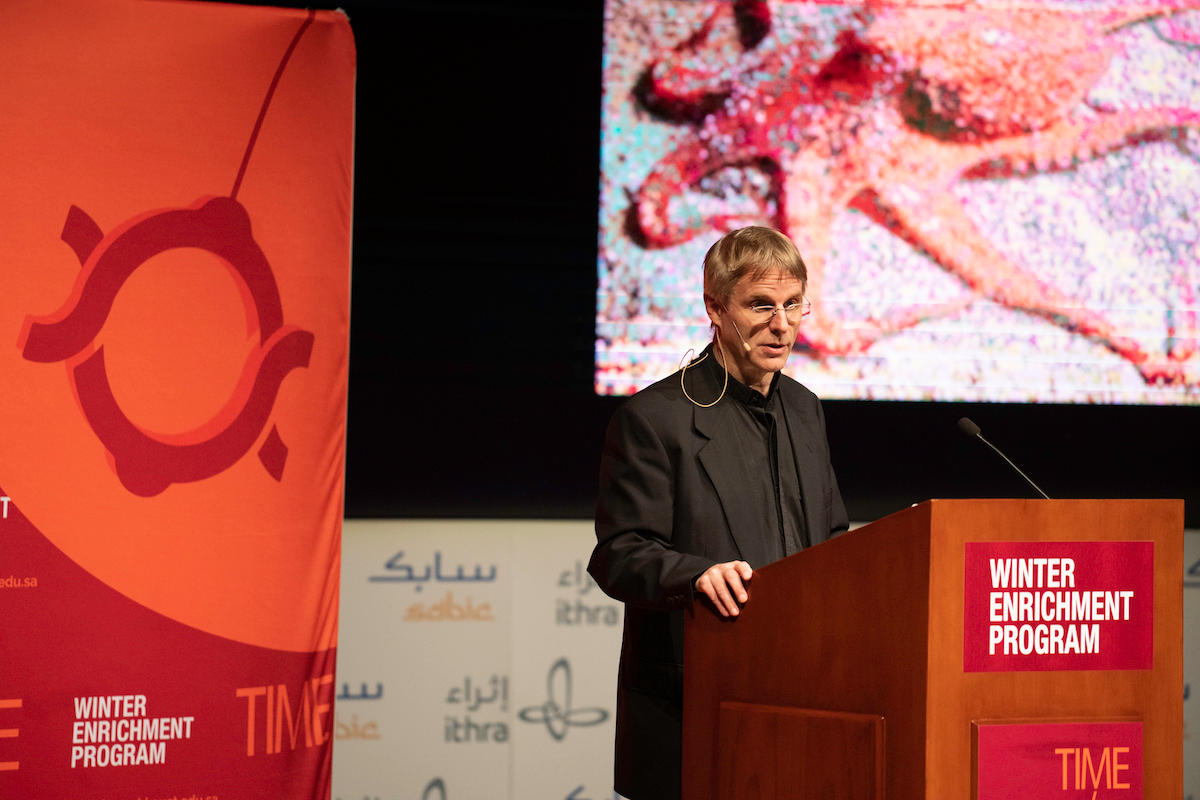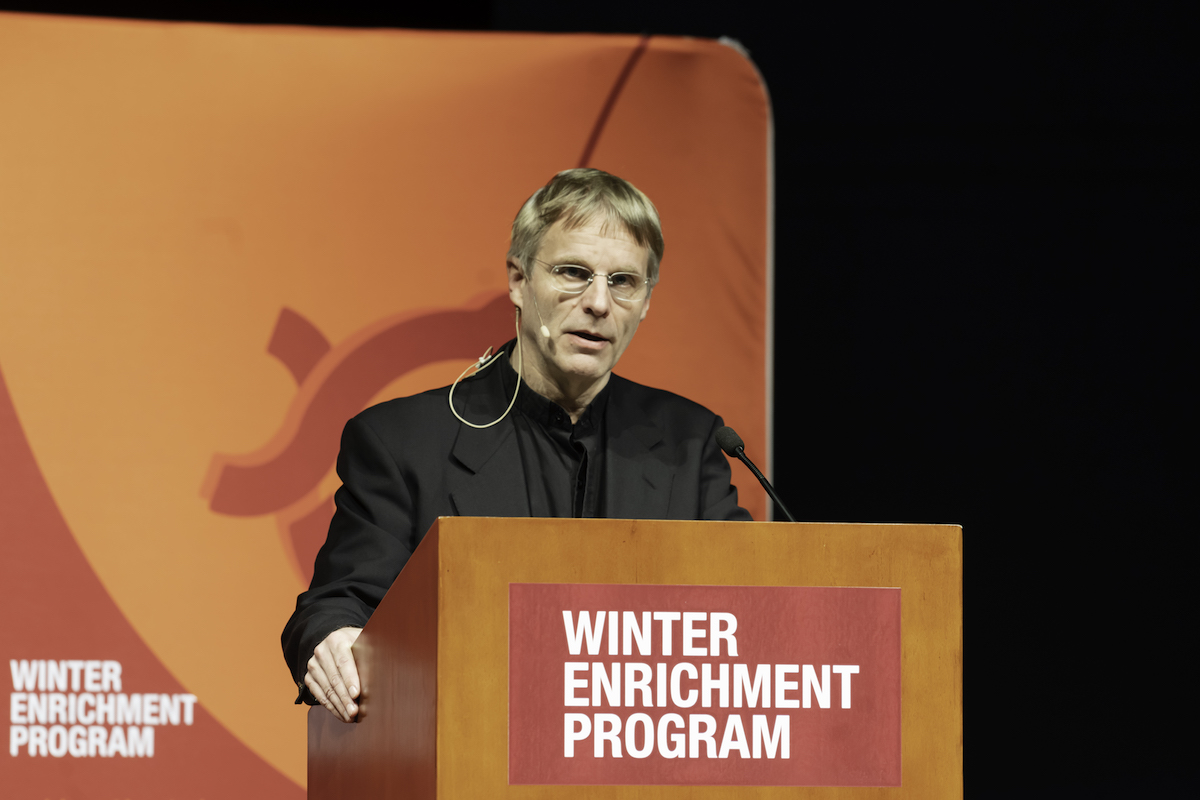What is consciousness?

Giulio Tononi, an expert in the field of consciousness, speaks on campus as part of the University's 2019 Winter Enrichment Program. Photo by Andrea Bachofen-Echt.
-By Annie Parenteau, KAUST News
During KAUST's 2019 Winter Enrichment Program (WEP), the University community and visitors explored the theme of "time." Giulio Tononi, a leading expert in the field of consciousness, gave a keynote lecture examining consciousness as part of WEP.
Tononi received his medical degree from the University of Pisa, Italy, where he specialized in psychiatry. He is currently a professor of psychiatry; a distinguished professor in consciousness science; the David P. White chair in sleep medicine at the University of Wisconsin–Madison; and the director of the Wisconsin Institute for Sleep and Consciousness.
What is consciousness? Tononi noted that "everyone has a different idea of consciousness and it is crucial to understand what it is."

Winter Enrichment Program speaker Giulio Tononi, director of the Wisconsin Institute for Sleep and Consciousness, explores consciousness by beginning from the experience itself and asking what physical system accounts for its properties. Photo by Andrea Bachofen-Echt.
However, consciousness is not just about the environment. We reach another level of consciousness when we dream and are asleep. Moreover, people in a vegetative state show some brain activity in the same areas as normal human beings when asked questions.
"They can imagine themselves playing tennis or recall some known memories," Tononi explained.
How can we explain consciousness, which is being aware of those experiences? Tononi has, for a neuroscientist, an unusual approach of explaining consciousness. Instead of starting by exploring brain structures to explain consciousness, he begins from consciousness itself and asks what physical system could account for its properties.

According to Giulio Tononi, an expert in the field of consciousness and a KAUST 2019 Winter Enrichment Program speaker, there are five axioms to better understand consciousness: intrinsic existence, composition, information, integration and exclusion. Photo by Andrea Bachofen-Echt.
Intrinsic existence states that consciousness exists; someone's experience is here and now exists—it is real and independent of external observers. Composition means that consciousness is structured.
"For example, within one experience I may distinguish a book, a blue color, a blue book, the left side, a blue book on the left, and so on," he said.
Information means that consciousness is specific. Each experience is the unique the way it is—and it thereby differs from other possible experiences. Integration means that consciousness is unified. We experience a whole scene and all its elements as a whole. Finally, exclusion, according to Tononi, is the fact that "an experience contains what it contains at the moment we experience it, and we might not record some contextual information, but that does not make that unique experience less rich," he explained.
.jpg)
Consciousness expert Giulio Tononi noted during his 2019 Winter Enrichment Program keynote lecture that 'the future will be highly intelligent but completely unconscious.' Photo by Andrea Bachofen-Echt.
But what about intelligence or—to push the limits further—artificial intelligence? Something can be highly intelligent but not conscious at all. Computers simulating our behavior are not conscious and computers simulating our neural behavior are not conscious—they are just tools. There is a double dissociation between consciousness and intelligence. Tononi concluded by noting that "the future will be highly intelligent but completely unconscious."
Related stories:
- Our biological clocks
- How does the universe work?
- Muslim civilization enriches the world
-
A race against time

